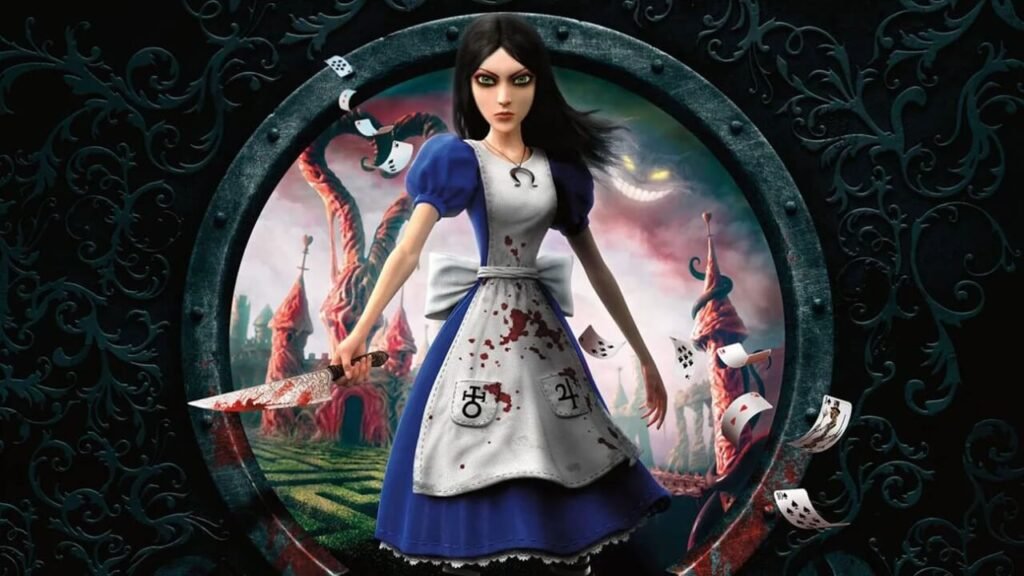The video game landscape is brimming with creative stories, but few have captured the dark imagination quite like Alice McGee Alice. This uniquely twisted take on the classic Lewis Carroll tales redefined narrative and artistic expression in gaming. For American gamers and enthusiasts alike, understanding the impact of this visionary game and its creator offers an intriguing glimpse into how gaming can transcend entertainment and become a profound artistic medium. The story begins with American McGee, the mastermind behind the game, whose vision turned a beloved children’s story into a haunting exploration of trauma, mental health, and personal recovery. In this blog, the essence of alice mcgee alice will be thoroughly explored, from its conceptual birth to its cultural footprint, leaving readers with a deep appreciation for its legacy.
Who is Alice McGee? The Visionary Behind the Dark Wonderland
The name alice mcgee alice is inseparable from American McGee, a Dallas-born video game designer renowned for his innovative work in the industry. American McGee’s journey into game design began unconventionally, marked by personal hardships and early academic challenges. Despite having to leave formal education at sixteen, McGee’s passion for computer programming led him to industry giants like id Software, where he contributed to acclaimed titles such as Doom II and Quake. This strong foundation gave him the technical prowess and creative freedom to pursue independent projects, culminating in the creation of American McGee’s Alice in 2000. The game was developed as a dark fantasy reimagining of Lewis Carroll’s classic novels, blending haunting aesthetics with complex psychological themes, something rarely seen in mainstream gaming at the time.
Exploring the World of Alice McGee Alice: A Haunting Reimagination
Alice McGee Alice dives deep beyond the whimsical tea parties and curious creatures of traditional Alice’s Adventures in Wonderland. This game presents a Wonderland fractured by Alice’s psychological trauma after a devastating house fire kills her family. Rather than a child’s playful fantasy, it’s a macabre, surreal realm twisted by grief and madness. This narrative depth is enhanced by the game’s mechanics, environment, and visual storytelling, which combine to produce a sense of eerie beauty and melancholy. Instead of pure escapism, players navigate through symbolic challenges that metaphorically represent Alice’s struggle with her past and psyche.
The game uniquely uses dark humor and gothic designs to create an atmosphere that feels more mature and reflective than typical adventure games. American McGee’s skillful use of the id Tech 3 engine allowed level design that feels immersive and artistically crafted. The sequel, Alice: Madness Returns, released in 2011, further expanded on these themes, exploring deeper melancholy while pushing modern graphics and gameplay mechanics.
The Cultural and Psychological Impact of Alice McGee Alice
What makes alice mcgee alice stand out in the gaming world isn’t just its artistry but its willingness to engage with complex psychological themes such as trauma, mental illness, and recovery. This sets a precedent in the medium, demonstrating how games can be powerful narratives for exploration of human emotions. According to Dr. Elizabeth Hartman, a clinical psychologist specializing in media influences on mental health, “Games like Alice McGee Alice provide players with a unique space to explore emotional resilience and psychological healing in an interactive format, which can foster empathy and self-reflection.” This quote underscores the game’s potential to impact players beyond entertainment, bringing awareness to mental health topics wrapped in engrossing gameplay and storylines.
Moreover, the game’s enduring appeal among American audiences stems from its originality and depth. It challenges players to reconsider fantasy as a genre capable of portraying tragedy and triumph simultaneously. McGee’s work also sparked conversations about dark-themed games in American media, paving the way for other developers to explore mature subjects with nuance and creativity.
The Legacy and Continued Influence of Alice McGee Alice
Since its release, American McGee’s Alice has left an indelible mark on both the gaming industry and popular culture. The game has sold over 1.5 million copies worldwide and gained a cult following for its unique blend of art, storytelling, and psychological depth. It has also influenced other game developers to take creative risks, particularly in narrative style and thematic complexity.
The project’s journey is notable not only for its critical and commercial success but also because of the creative resilience of its developer, McGee, who continued to innovate with independent projects after parting ways with Electronic Arts. He leveraged grassroots platforms like Patreon and Kickstarter to fund his vision, demonstrating a modern path for indie developers in the American game market.
Additionally, alice mcgee alice’s influence extends to academic and artistic discourse. Scholars have analyzed its narrative techniques and psychological symbolism, often citing it as a case study in how video games can be a form of interactive storytelling and psychological art.
Conclusion: Why Alice McGee Alice Matters Today
In conclusion, alice mcgee alice is far more than a video game; it is a cultural artifact that illustrates the transformative power of digital storytelling. American McGee’s vision challenged the boundaries of fantasy, highlighting how games can thoughtfully address complex themes such as trauma and healing while captivating audiences with immersive design and compelling narratives. For American gamers and enthusiasts, Alice McGee Alice offers not only a gaming experience but an invitation to explore the depths of human emotion through the lens of dark fantasy. As the industry evolves, McGee’s work remains a benchmark for creativity, artistic ambition, and emotional storytelling in gaming.
By understanding and appreciating the legacy of alice mcgee alice, players gain insight into how video games can be more than just entertainment—they can be profound expressions of the human experience.
you may also like
Unlocking the Magic of Sonic Rings: Power, Purpose, and Popularity
